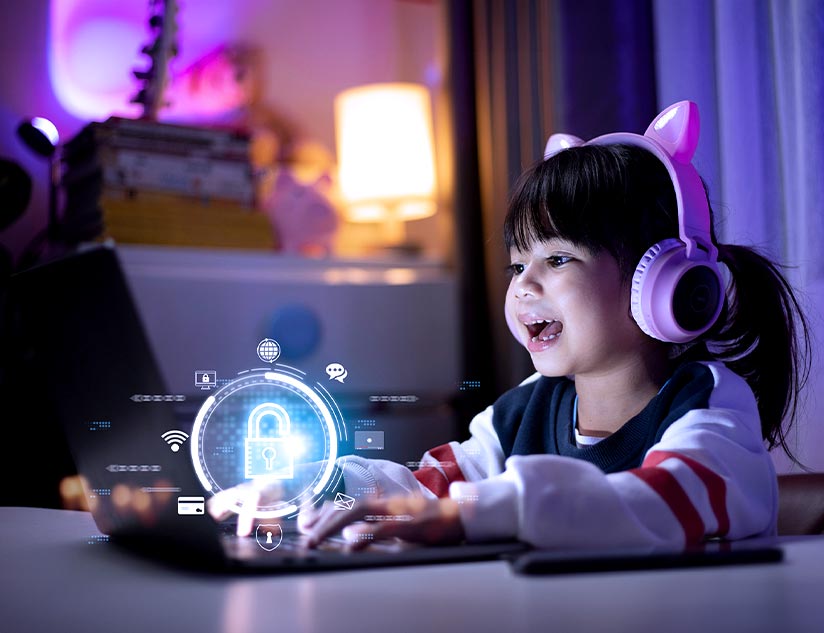Back-to-School Success: 4 Ways Parents Can Empower Their Child’s Education
July 24th, 2023
The back-to-school season brings a fresh start, new opportunities, and a full year of novel learning avenues for students. However, in the digital learning age, the lack of excitement of reconnecting with classmates and the uninterrupted access to screen time through the vacations may make the transition less pronounced. This is where parents and educators need to jump in and instill enthusiasm for the new school year.
Challenges Faced by Learners in the Digital Age
According to a UNICEF study, different age groups face different challenges in online learning settings:
- Young learners lack effective communication skills and sometimes confidence. They may need assistance through the initial years to help express their needs. Supplementing hands-on experiences, such as book reading, learning-by-doing activities, and encouraging communicative language use can translate to strengthen learners’ ability to reach their full potential.
- Teenagers, on the other hand, may feel a higher need for connection with their peers, become overexposed to screen time, and become stressed due to the increased workload. They may fail to understand that it is similar for all students their age. Parents need to be great listeners and encourage children to communicate their challenges. Offering support and stress management help when they need it has a great impact on individual growth.
Tips For Parents to Ensure an Excellent Back-to-School Experience
Foster a Pro-Learning Environment
This starts with setting up a learning area with a study table and necessary equipment. Next, eliminate all distractions, such as students’ hobby materials, favorite toys, and pets. Keep the area clutter-free, and make sure you do not interrupt or create distractions during learning time. Do not allow what wouldn’t be allowed in a classroom, such as a call from a relative, gaming devices, etc.
Also, enforce a routine. Despite learning being available anytime and anywhere, scheduling learning and sticking to a specific time each day is critical to improving knowledge assimilation. Developing and sticking to a study timetable can be a significant way for students to “identify and interact with their learning environment,” says a 2021 study published in Research Directions.
A set routine helps prevent procrastination, ensures adequate learning durations, prevents stress, improves time management, and facilitates achieving goals. A great way to build a routine is to embed breaks within it. Parents of teenagers should include their children in schedule planning according to their strengths and weaknesses.
Encourage the Use of a Variety of E-Learning Tools
Learning platforms equipped with advanced tools, such as gamified modules, interactive video lessons, augmented resources to improve concept understanding, etc., serve as effective tools for learning engagement. Parents must encourage their kids to make the most of all these tools. Help them explore the features of the learning platform for augmented immersive learning experiences. These are designed to boost student engagement while improving the achievement of learning milestones.
Nurture Digital Literacy
A critical activity in the age of digitization is preventing harmful use of the Internet and related technologies. Facilitating awareness regarding the proper utilization of learning resources is essential. It includes teaching students about being responsible netizens and using digital research for constructive purposes. Parents can also monitor online activities and implement parental controls to ensure that the privacy and data of their children are not misused. Parents should verify that the learning platforms offered to their children adhere to digital education regulations, such as COPPA, FERPA, and GDPR.
Be Present
Communication and collaboration with teachers are necessary to ensure that learning goals are achieved. Parents can encourage their children to participate in group discussions, collaborative projects, and virtual competitions. This helps build social-emotional intelligence among children, which could remain underdeveloped in remote learning settings. Positive reinforcement and encouragement can prove instrumental in building a positive learning mindset.
Improving the Overall Learning Experience
EdTech providers and educators need to focus on eliminating the digital divide, lowering the cost of learning, and scaling the education system to accommodate diversity, foster inclusivity, and offer learning equity. Parents and teachers, in direct contact with learners, have a significant role in making the back-to-school transition smooth. According to the Organization for Economic Cooperation and Development (OECD)’s report, emotional support from parents and teachers is key to helping students develop a positive attitude toward learning in any form.
Adapting oneself to the digital era is the first step to understanding the challenges and helping K-12 learners navigate them. Whether fully remote or technology-facilitated, on-premise learning, digitization of pedagogy, and the learning process have redefined the education experience for all parties – teachers, students, parents, educational institutions, and learning technology providers.
Global online education is projected to grow at a CAGR of 9.48% during 2023- 2027, which means online education is bound to proliferate exponentially. Further, geopolitical and environmental factors are increasingly reducing in-person classroom time and bolstering online learning paradigms. Parents must, therefore, acclimatize themselves to advanced educational methodologies to facilitate superior learning experiences for their children.
MagicBox™ is an award-winning, cloud-based SaaS learning platform with a dedicated parent portal. It offers educational institutions, teachers, and edtech providers powerful tools to support parents and students. Contact us to learn how the back-to-school experience can be elevated this year.






